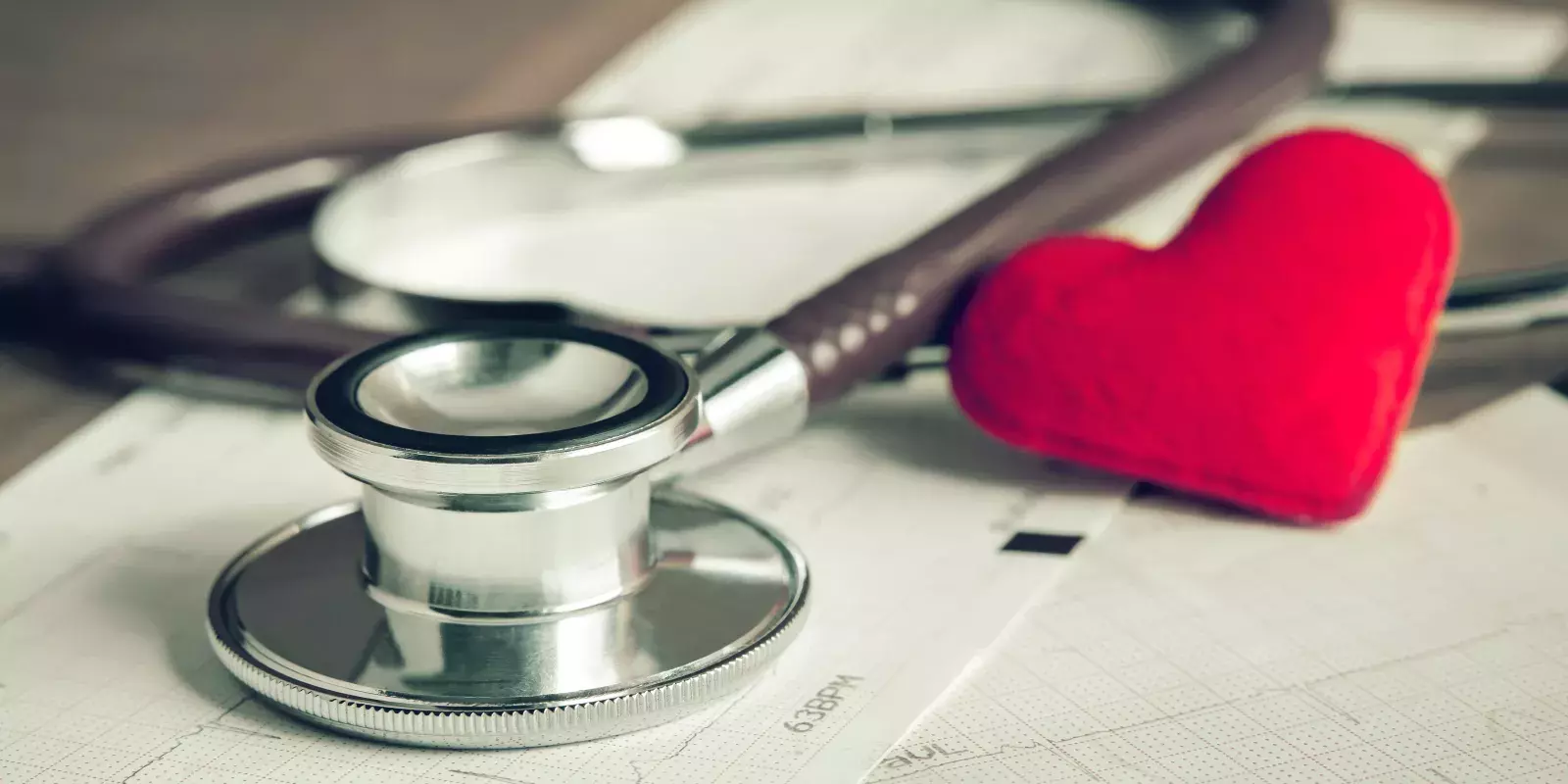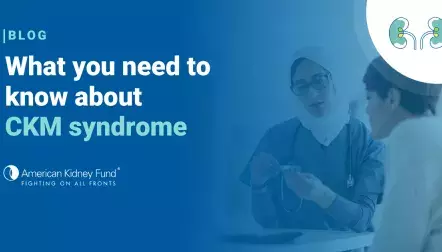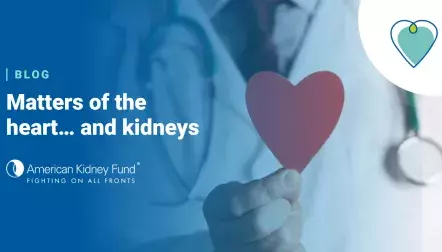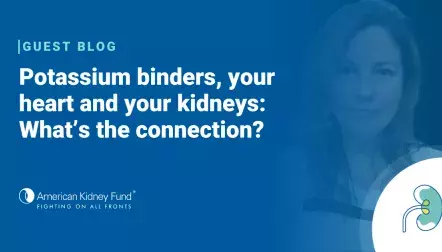
Heart disease and chronic kidney disease (CKD)

Having chronic kidney disease (CKD) means you are more likely to get heart disease. CKD can cause heart disease, and heart disease can cause CKD. In fact, heart disease is the most common cause of death among people on dialysis.
The best way to prevent heart disease is to prevent or treat the problems that can cause it, such as diabetes, high blood pressure and anemia.
What is heart disease?
Heart disease includes any heart or blood vessel problem that keeps your heart from pumping blood as well as it should. It is also called cardiovascular disease (CVD).
Heart disease can include:
- Coronary artery disease (CAD)
- Also known as coronary heart disease, CAD occurs when the arteries (tubes that carry blood) are not able to deliver blood to the heart. Also known as coronary heart disease, CAD occurs when the arteries (tubes that carry blood) are not able to deliver blood to the heart. Arteries can become narrow from a buildup of cholesterol, known as plaques, which makes it harder for enough blood to get to your heart. Blood carries oxygen and important nutrients to your heart; without it, the heart can become damaged, and a heart attack can occur.
- Heart attack
- A heart attack happens when the blood that is flowing to your heart is suddenly blocked. When this occurs, your heart is no longer getting enough oxygen, which can lead to damage in the heart. Many heart attacks are caused by coronary artery disease (CAD).
- Atrial fibrillation (Afib or AF)
- Afib causes the heart to beat faster than normal, it is a common type of irregular heartbeat (arrythmia). In some cases, Afib can cause life-threatening complications. AFib interferes with the flow of blood through the heart and can cause it to pool in upper chambers. This can cause blood clots, which are clumps of blood cells that form a gel substance. Blood clots can cause a stroke or heart failure by blocking the flow of blood to part of the heart or brain.
If your kidneys do not work well, they cannot support other parts of your body as well as they should. This causes problems with tissues and other organs, including your heart.

What are the symptoms of heart disease?
You may not have symptoms of heart disease until your heart and blood vessels are badly damaged. Symptoms depend on the type of heart disease you have.
Symptoms of heart disease may include:
- Chest pain
- Shortness of breath
- Feeling sick to your stomach
- Feeling weak and tired
- Pain, numbness, weakness or coldness in your legs or arms
- Pain in your neck, jaw, throat, upper belly area (abdomen) or back
- Swelling of your legs, ankles and feet
- Irregular heartbeats that feel fast, pounding or fluttering
- Feeling dizzy or lightheaded or fainting
Tell your healthcare provider if you have any of these symptoms. The earlier heart disease is found, the easier it is to treat.
What causes heart disease?
Diabetes and high blood pressure, the most common causes of CKD, also cause heart disease.
Diabetes is a lifelong disease where too much sugar stays in your blood because your body cannot make or use insulin, the hormone that turns blood sugar (glucose) into energy. High blood sugar can damage blood vessels in the kidneys and the heart.
High blood pressure is a condition where the force of blood in your blood vessels is too strong, which can damage your heart and the blood vessel walls. If your kidneys do not work well, your hormone system makes the heart pump harder to increase the blood supply to your kidneys. This raises your blood pressure.
Other health problems that can happen with CKD and cause heart disease include:
- Anemia, when there are not enough red blood cells in your body, which can affect your energy levels.
- High homocysteine levels, which is a protein that builds up in your blood if damaged kidneys cannot remove it — this can damage blood vessels or lead to a heart attack.
- Unbalanced calcium and phosphorous levels which are minerals that can build up in your blood stream and can damage your bones, and muscles, including your heart.
- Hyperkalemia, which is the buildup of potassium in your blood , and can affect your muscles, including your heart.
Talk to your doctor about being tested for diabetes, high blood pressure and other problems that can happen with CKD.
How will I know if I have heart disease?
If you have CKD, your doctor will do regular checks for signs of heart disease, including physical exams, blood work and asking you about symptoms.
If you have any symptoms of heart disease, your doctor will do tests, such as:
- Blood draws
- Electrocardiogram (ECG) or holter monitoring
- Imaging tests, including:
- Chest X-rays
- Cardiac CT scan
- Cardiac MRI
- Echocardiogram
- Cardiac catheterization
Your doctor will do different tests depending on what type of heart disease they think you may have.
How do doctors treat heart disease?
If you have heart disease and CKD, your doctor may prescribe medicines to treat your heart disease.
Common medicines to treat heart disease include:
- Diuretics (water pills): Medicines that lower blood pressure, remove extra fluid and help your kidneys get rid of water and salt.
- Angiotensin-Converting Enzyme (Ace) inhibitors: Heart medicines that widen your blood vessels, lower blood pressure and improve blood flow.
- Beta blockers: Medicines that lower blood pressure by blocking the hormone adrenaline, which helps your heart beat more slowly and with less force.
- Anticoagulants (blood thinners): Medicines that keep your blood from clotting too easily and break down existing blood clots.
Some of these medicines may cause problems with your kidneys. Talk to your doctor about which medicines could work best for you.
Your doctor will also encourage you to make healthy life changes, such as to be active and eat kidney-friendly foods. They can help you find a dietitian to create a healthy eating plan.
How can I prevent heart disease?
The best way to prevent heart disease is to work with your doctor to find and treat the problems that can lead to heart disease, such as diabetes, high blood pressure and anemia.
You can also help prevent heart disease by making healthy life choices, including to:
- Follow a kidney-friendly eating plan
- Take all of your prescription medicines as your doctor tells you
- Be active for 30 minutes most days of the week, this can include walking, biking or swimming
- Quit smoking or using tobacco
- Manage your stress levels and incorporate relaxation practices such as calm breathing, yoga and meditation
Ask your doctor about other ways to lower your chance for heart disease if you have CKD.




